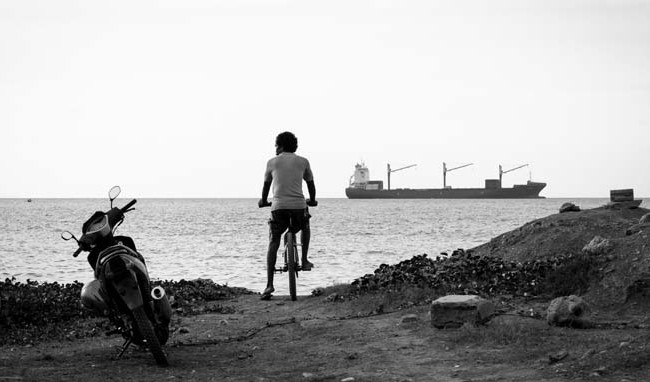
The Canberra raiders
In the first week of December 2013, the Permanent Court of Arbitration at The Hague in the Netherlands convened to arbitrate on questions of suspected breaches of international law brought against Australia by Timor Leste.
In what has been described as a ‘1950s spy thriller’, the resource rich, conflict-torn nation of Timor Leste is contesting the AUD 40 billion oil and gas treaty it signed with Australia in 2004. The public espionage claims by a whistleblower, a former Australian Security Intelligence Service technical operations director, suggested that the integrity of the CMATS Treaty had been compromised during negotiations. ASIS reportedly bugged the prime minister’s office and the cabinet offices as well.
The CMATS Treaty is peculiar, to say the least. It ignores international standards concerning maritime borders, with the result that Australia gets a 50% cut of what is known as the Greater Sunrise natural gas field. Had the border been drawn along standard lines, Timor would have been sole owner of the field.
It’s alleged that then-foreign minister Alexander Downer ordered an ASIS team, posing as development workers, to install the bugs. Mr Downer now runs a public relations firm that lists Woodside Petroleum, Sunrise’s major operator, among its clients.
At issue in The Hague is whether spying on a country you’re negotiating with renders any subsequent treaty null and void. The relevant international conventions, significantly, do not require that a treaty be negotiated in good faith in order to be valid. Spying alone might not be enough to invalidate the treaty, but once proven, it could well force a renegotiation of the terms.
As the arbitration process kicked off in the Netherlands, it set in motion a sequence of events involving security searches by Australian law enforcement and intelligence officials on individuals and property of persons in Australia connected to Dili.
ASIO officials, citing national security concerns, ransacked the Canberra offices of Bernard Colleary, the Australian lawyer representing Timor Leste in the case.
Another search, this time of the whistleblower’s Canberra home, coincided with the cancellation of his passport. ASIO boss David Irvine accused the man of breaking the law by exposing ‘classified information’. Meanwhile Mr Colleary, a former ACT Attorney General, is seeking witness protection in the Netherlands for the whistleblower.
On December 5th, Timor Leste Prime Minister Xanana Gusmao expressed only a fraction of the frustration felt by Timorese when he called Australia’s actions ‘counterproductive and uncooperative.’ In Dili, demonstrators gathered outside the Australian embassy after fresh online reports emerged detailing the raids on their country’s legal representative and key witness at The Hague.
Then on December 15th, East Timor Development Agency director Palmira Pires, her mother, a small child and an assistant were detained at Darwin International Airport and their belongings searched by the Customs officials. The search turned up $30,000 in undeclared cash. In the course of the search, Customs appears to have confiscated several mobile phones and other electronic devices. They have yet to be returned.
Palmira Pires is the sister of Timor Leste Finance Minister Emilia Pires and Petroleum Minister Alfredo Pires.
The exposure of Australia’s espionage is being linked to the November 2013 collapse in cooperation with Indonesia on military matters and in dealing with asylum seekers. Indonesian president Susilo Bambang Yudhoyono reacted angrily to documents leaked by NSA whistle blower Edward Snowden. The documents indicate that the mobile phone conversations of the President and his wife, along with several close confidants, were being monitored by Australian intelligence services.
Australian Prime Minister Tony Abbott rather insensitively suggested that Indonesia ‘move on from the spying allegations and resume cooperation on people smuggling’. Later, Mr Abbott indecorously blamed the diplomatic impasse for the increased boat arrivals in Australia.
Indonesia’s refusal to cooperate in a boat buy-back scheme, apparently a reaction to the spying charges, has forced Australia to rethink its $20million border security and asylum seeker strategy, and to come up with a different plan ‘to invest the money in an anti-people smuggling campaign in transit and source countries.’
The most recent spate of allegations of espionage against Australia will continue to affect Australia’s international relationships, all the more if the Abbott government continues in its refusal to admit its intelligence ambitions are affecting critical security and border control policies.
